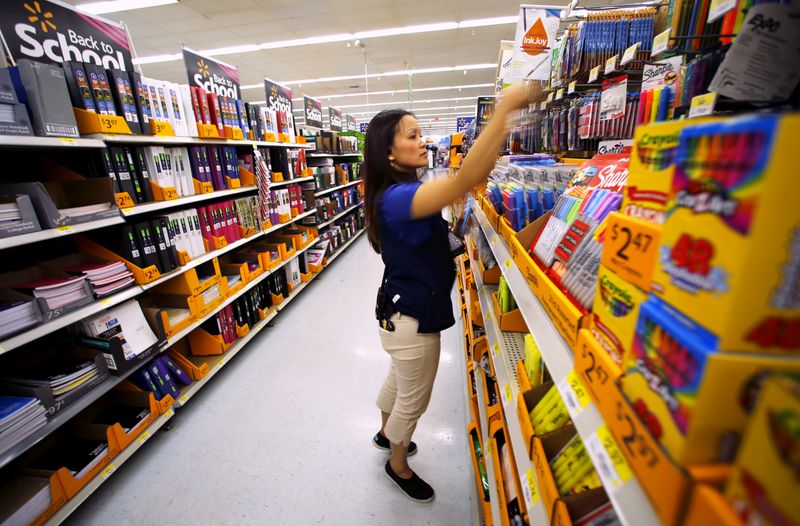WASHINGTON, (Reuters) - U.S. consumer spending appears to have slowed further in January, with sales at clothing stores declining by the most since 2009, which could raise concerns about the economy's ability to continue expanding at a moderate pace.
The Commerce Department said on Friday retail sales excluding automobiles, gasoline, building materials and food services were unchanged last month. Data for December was revised down to show the so-called core retail sales rising 0.2% instead of jumping 0.5% as previously reported.
Core retail sales correspond most closely with the consumer spending component of gross domestic product.
Economists polled by Reuters had forecast core retail sales rising 0.3% last month.
The unchanged reading in core retail sales suggested consumer spending slowed further after it lost considerable momentum in the fourth quarter.
Fed Chair Jerome Powell told lawmakers this week that the "economy is in a very good place, performing well." The U.S. central bank last month left interest rates steady. The Fed is widely expected to keep monetary policy on hold this year after it reduced borrowing costs three times in 2019.
The economy grew 2.3% in 2019, slowing from 2.9% in 2018.
Overall retail sales, however, rose 0.3% in January. Data for December was revised down to show retail sales gaining 0.2% instead of climbing 0.3% as previously reported.
Auto sales rebounded 0.2% after slumping 1.7% in December. Receipts at service stations fell 0.5%. Sales at electronics and appliance stores decreased 0.5%.
Sales at building material stores jumped 2.1%, the most since last August, after rising 1.3% in December. Sales were likely boosted by unseasonably mild weather.
Receipts at clothing stores dropped 3.1% last month, the most since March 2009. Online and mail-order retail sales rose 0.3%. That followed a 0.1% dip in December. Receipts at furniture stores rose 0.6%.

Sales at restaurants and bars increased 1.2%. Spending at hobby, musical instrument and book stores edged up 0.1%.